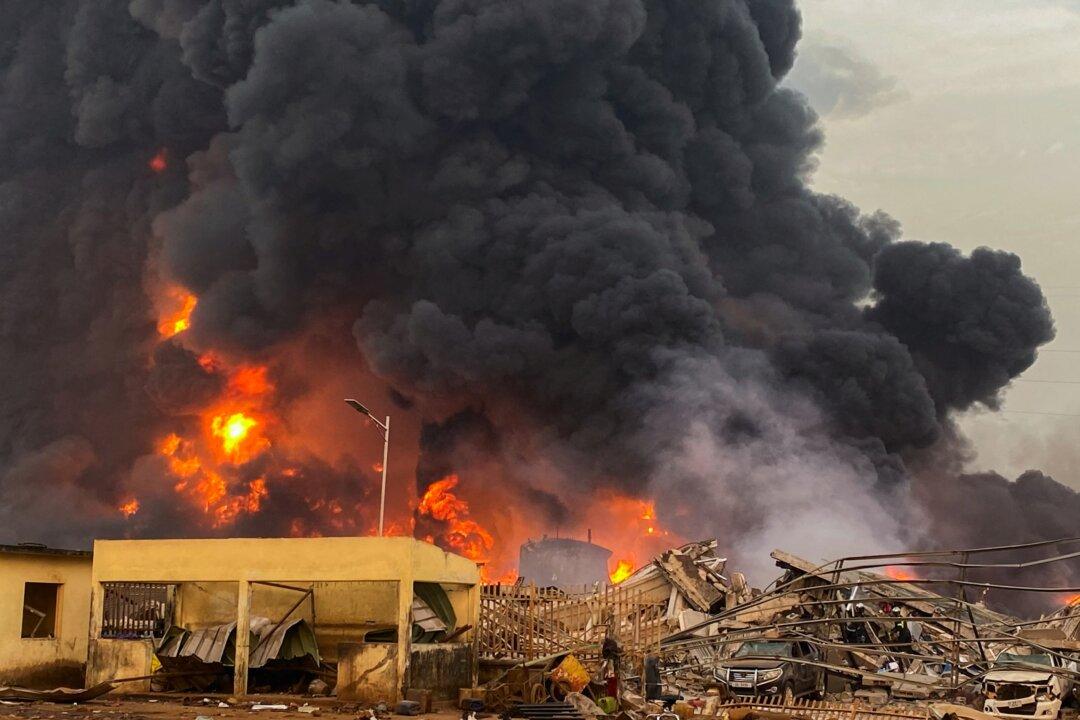CONAKRY—An explosion at an oil terminal in Guinea’s capital Conakry killed at least 13 people and injured 178 on Monday, the government said, as firefighters worked through the afternoon to fully extinguish the blaze.
The blast at the West African nation’s main oil terminal rocked the Kaloum administrative district in downtown Conakry early in the morning, blowing out the windows of nearby homes and forcing hundreds to flee, according to a Reuters witness.





